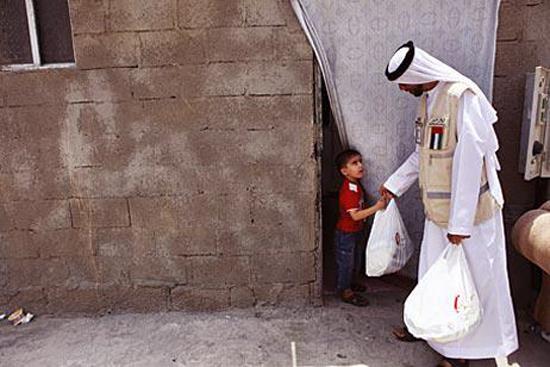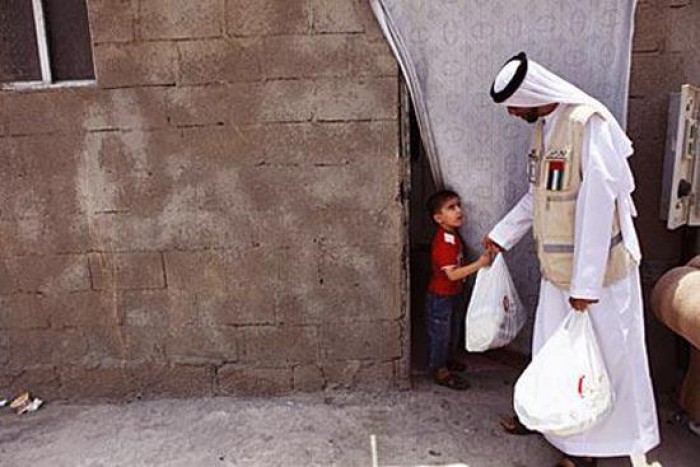Doing a lot of Righteous Deeds and Filling one’s time with them
This is one of the best ways of dealing with weak faith, and is clearly very effective in strengthening faith and make us getting closer to Allah Subhanahu Wa Ta’alaa.
Abu Bakr al-Siddeeq (may Allah be pleased with him) set the best example of this, when the Messenger (peace and blessings of Allah be upon him) asked his Sahaabah: “Who among you got up fasting this morning?” Abu Bakr said, “I did.” He asked, “Who among you has attended a funeral today?” Abu Bakr said, “I have.” He asked, “Who among you has fed a needy person today?” Abu Bakr said, “I have.” He asked, “Who among you has visited a sick person today?” Abu Bakr said, “I have.” The Messenger of Allaah (peace and blessings of Allah be upon him) said, “No man does all of that but he will enter Paradise.” (Reported by Muslim, Kitaab Fadaa’il al-Sahaabah, Baab 1, Hadeeth 12).
This story demonstrates that Abu Bakr al-Siddeeq (may Allaah be pleased with him) was keen to make the most of every opportunity and to do a variety of acts of worship. Because this was an unexpected question on the part of the Prophet (peace and blessings of Allah be upon him), this indicates that Abu Bakr’s days were filled with acts of obedience and worship. The salaf (may Allah have mercy on them) reached the highest levels in their efforts to do righteous deeds and fill their time in this manner. An example of this is what was said about a group of the salaf among whom was Hammaad ibn Salamah. Imaam ‘Abd al-Rahmaan ibn Mahdi said: “If it were said to Hammaad ibn Salamah, ‘You will die tomorrow,’ he would not be able to do more good deeds (than he was already doing).” (Siyar A’laam al-Nubala’, 7/447).
The Muslim should pay attention to the following when doing good deeds:
1 – Hasten to do good deeds
Allah says (interpretation of the meanings): “And march forth in the way (which leads to) forgiveness from your Lord, and for Paradise as wide as are the heavens and the earth…” [Aal ‘Imraan 3:133] and “Race one with another in hastening towards Forgiveness from your Lord (Allaah), and towards Paradise, the width whereof is as the width of heaven and earth…” [al-Hadeed 57:21].
The Prophet (peace and blessings of Allah be upon him) said: “Deliberation in all things,” but according to another report, he added, “except in deeds that pertain to the Hereafter [i.e., good deeds].” (Reported by Abu Dawood in his Sunan, 5/175; Saheeh al-Jaami’, 3009).
2 – Continuing to do good deeds
The Prophet (peace and blessings of Allah be upon him) said, transmitting the words of his Lord in a hadeeth qudsi: “… ‘My slave keeps drawing nearer to me with naafil (supererogatory) deeds until I love him.’” (Saheeh al-Bukhaari, 6137).
The phrase maa yazaalu (“keeps [drawing near]”) gives the impression of continuity. The Prophet (peace and blessings of Allaah be upon him) said: “Continue doing Hajj and ‘Umrah.” (Reported by al-Tirmidhi, no. 810; al-Silsilat al-Saheehah, 1200).
This is an important principle when it comes to strengthening one’s eemaan and not neglecting oneself to the point of stagnation. A small deed that is continuous is better than a big deed that is not done regularly.
The Prophet (peace and blessings of Allah be upon him) was asked: “Which deed is most beloved to Allah?” He said, “The one that is continuous, even if it is little.” (Reported by al-Bukhaari, Fath, 11/194).
“When the Prophet (peace and blessings of Allah be upon him) did something, he kept it up.” (Reported by Muslim, Kitaab Salaat al-Musaafir, Baab 18, Hadeeth 141).








